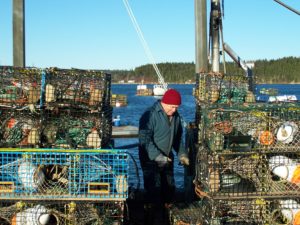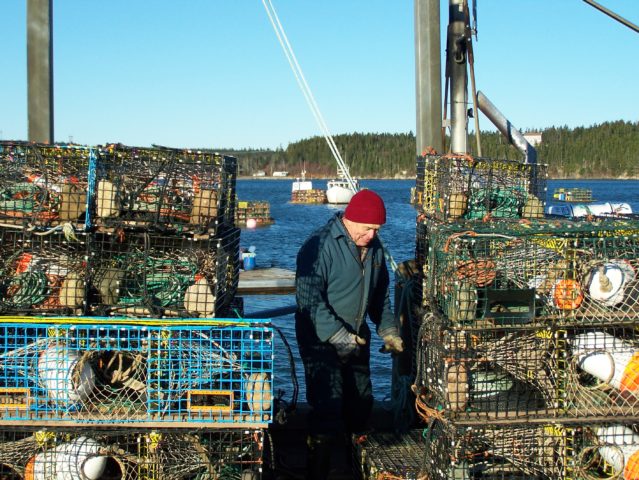
Fishermen, scientists, and those living and working along the Bay of Fundy and Gulf of Maine, like our own Fundy Baykeeper, say climate change and rising ocean temperatures are already having a pronounced impact on the fisheries so critical to the region.
Our Fundy Baykeeper Matt Abbott was among those who described changes they are witnessing first-hand on the bay and within fisheries in an in-depth article published this week in Ohio-based newspaper The Blade.
We briefly summarize the article, ‘Impact of warming seas felt by northeastern fisheries’ by Matt Markey, below, but strongly encourage you to read it in full.
You’ll hear from Donald Killorn, executive director of our friends at Eastern Charlotte Waterways in Blacks Harbour, N.B., who says the temperature change in the Bay of Fundy and in the Gulf of Maine is “as severe as anywhere on the planet, and it is having a significant impact on the biodiversity of these waters.”
“The temperature change is so dramatic, and as a result we are seeing certain species in rapid decline, while others are on the increase … but it is not the only issue at all. We’ve seen a dramatic decrease in plankton, and we’re not sure why. There is also the changing pH, and the role it plays is not easy to understand, but when we change ocean temperature and we change the acidity level or pH, we end up changing biodiversity,” Killorn says.
The article notes the cod fishery, once a mainstay of the industry, already fell victim to climate change, citing a report published by the Gulf of Maine Research Institute’s Andrew J. Pershing in the journal Science, which stated a “failure to recognize the impact of warming on cod (numbers) contributed to overfishing” and its collapse.
Today, rising water temperature in the Bay of Fundy and Gulf of Maine is causing a boom in the harvest of lobster, scallop and halibut. (As we reported earlier this year, however, scientists predict that boom won’t last as the temperature continues to rise.)

Our Fundy Baykeeper, Matt Abbott, told The Blade that the bay is experiencing a laundry list of negative impacts resulting from climate change.
“Some of the lobster fishermen are catching in a day what they once caught in a whole season, but overall the diversity of fish is not nearly what it used to be,” Abbott said. “This area is being hit hard with climate change. Fishing in coastal waters has been about adapting to change, and it is still about adapting to change. The difference is that climate change accentuates and makes less predictable the changes fisherman have to endure.”
Alan Madden, a retired fisheries and wildlife biologist with the New Brunswick Department of Natural Resources, agrees, telling The Blade, “in the last decade, we’re seeing birds we’ve never seen before, moving northward, and we have more lightning events, more tornadoes — and this is all happening now. The air has definitely warmed, so it follows that the waters are warming also. We talk about how we love global warming since it moderates our winters, but the reality is, it is doing much more harm.”

